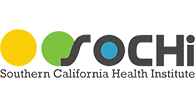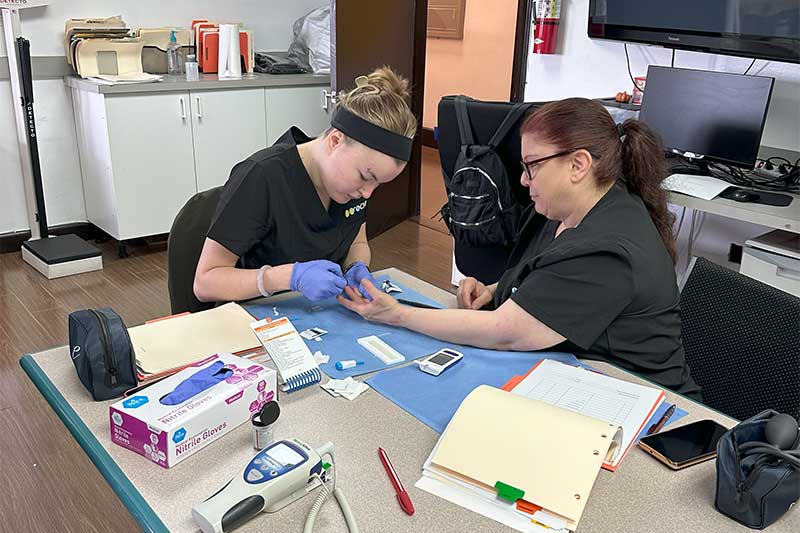In an increasingly automated world, technical expertise often takes center stage. We celebrate coding bootcamps, data science certifications, and the latest software skills. While these “hard skills” are undeniably valuable, another set of abilities is proving to be just as crucial for long-term career success: soft skills. These interpersonal qualities are the human element that technology can’t replicate, and they are becoming a key differentiator in the job market.
This post will explore why soft skills have become so vital, particularly within the healthcare industry. We will identify the most in-demand interpersonal skills and discuss how you can actively develop them to build a resilient and rewarding career. For those aspiring to enter the healthcare field, understanding and cultivating these abilities is no longer optional—it’s essential for providing compassionate, effective care.
What Are Soft Skills, and Why Are They Important?
Soft skills are the personal attributes, communication abilities, and social graces that enable individuals to interact effectively and harmoniously with others. Unlike hard skills, which are technical and teachable abilities, such as using specific software or equipment, soft skills are more about who you are and how you work. Think of communication, empathy, teamwork, problem-solving, and time management.
For years, employers have recognized the value of these skills. A LinkedIn study found that 92% of hiring managers believe soft skills are as important or more important than hard skills. The rise of AI and automation has only amplified this. As routine, technical tasks become automated, the uniquely human ability to connect, empathize, and collaborate becomes more valuable.
In the healthcare sector, this is especially true. Patients are more than just a set of symptoms; they are people seeking reassurance, understanding, and compassionate care. A medical assistant with excellent technical training is good, but one who can also calm an anxious patient and communicate clearly with the medical team is invaluable. These interpersonal abilities lead to better patient outcomes, higher job satisfaction, and a more positive work environment.
The Top 5 Soft Skills for a Career in Healthcare
While countless soft skills contribute to professional success, some are particularly critical in allied health fields. Here are five of the most sought-after skills for anyone looking to build a healthcare career.
1. Communication
Clear and effective communication is the backbone of the healthcare system. This includes listening actively to patients to understand their concerns, explaining complex medical information in simple terms, and collaborating seamlessly with doctors, nurses, and other professionals. Miscommunication can lead to serious errors, while effective communication builds trust and ensures everyone is aligned.
2. Empathy and Compassion
Empathy is the ability to understand and share the feelings of another person. In healthcare, it means putting yourself in your patient’s shoes and responding with genuine compassion. Patients are often in vulnerable situations—scared, in pain, or confused. An empathetic healthcare professional can provide comfort and build a trusting relationship, which is fundamental to the healing process.
3. Teamwork and Collaboration
Healthcare is a team sport. From medical assistants and physical therapy aides to billing specialists, every role is interconnected. The ability to work collaboratively, share responsibilities, and support colleagues is crucial for a functioning medical practice. A positive team dynamic directly translates to better and safer patient care.
4. Problem-Solving
No two days in healthcare are the same. Unexpected situations arise constantly, requiring professionals who can think on their feet and find effective solutions. This could involve managing a difficult patient interaction, resolving a scheduling conflict, or identifying an issue with a patient’s care plan. Strong problem-solvers are resourceful, adaptable, and essential to any healthcare team.
5. Time Management and Organization
The healthcare environment is often fast-paced, with numerous competing priorities. Professionals must be able to manage their time effectively to ensure all tasks are completed accurately and on schedule. This includes everything from preparing examination rooms and managing patient records to coordinating appointments and scheduling. Excellent organizational skills reduce stress and prevent critical details from falling through the cracks.
How SOCHi Cultivates Essential Soft Skills
At the Southern California Health Institute (SOCHi), we understand that a successful healthcare career requires more than just technical proficiency. Our mission since 1995 has been to develop empathetic and compassionate allied health professionals who are ready for the real world. We integrate soft skills training into every aspect of our curriculum.
Our programs, including Medical Assistant, Physical Therapy Aide/Sports Rehab, and Certified Nurse Assistant, are designed to provide students with hands-on, career-focused training. Here’s how we help you build the interpersonal skills that employers are looking for:
- Real-World Scenarios: Our training includes practical, real-world experience where you’ll interact with peers and instructors in simulated clinical settings. This prepares you for the dynamic and often unpredictable nature of a healthcare environment.
- Collaborative Learning: Many of our courses involve group projects and team-based learning. This fosters a sense of teamwork and teaches you how to communicate and collaborate effectively with your colleagues, just as you would on the job.
- Instructor Mentorship: Our instructors bring years of industry experience to the classroom. As one graduate, Iliana, noted, her instructor became a mentor who prepared her to be “a successful, efficient, and professional Medical Assistant.” This guidance helps students develop the confidence and professionalism needed to excel.
- Emphasis on Ethics and Compassion: Our mission is to cultivate a learning community that nurtures empathetic and compassionate professionals. We instill the ethical and social principles that are fundamental to providing outstanding patient care.
By combining rigorous technical education with a strong focus on interpersonal development, SOCHi ensures that our graduates are not only skilled but also compassionate, communicative, and ready to make a real difference in their patients’ lives.
Your Path to a Fulfilling Healthcare Career
As technology continues to reshape the job market, the value of uniquely human qualities will only grow. Soft skills are no longer a “nice-to-have”—they are the foundation of a successful and sustainable career, particularly in people-focused fields such as healthcare. By developing your ability to communicate, empathize, and collaborate, you set yourself up for success no matter how the industry evolves.
If you are passionate about helping others and are ready to train for a rewarding career, SOCHi is here to guide you. Our programs are designed to equip you with both the technical knowledge and the essential soft skills needed to thrive.
Explore our career training programs today or schedule a campus tour to discover how SOCHi can help you unlock your potential and begin your journey in the world of allied health.



